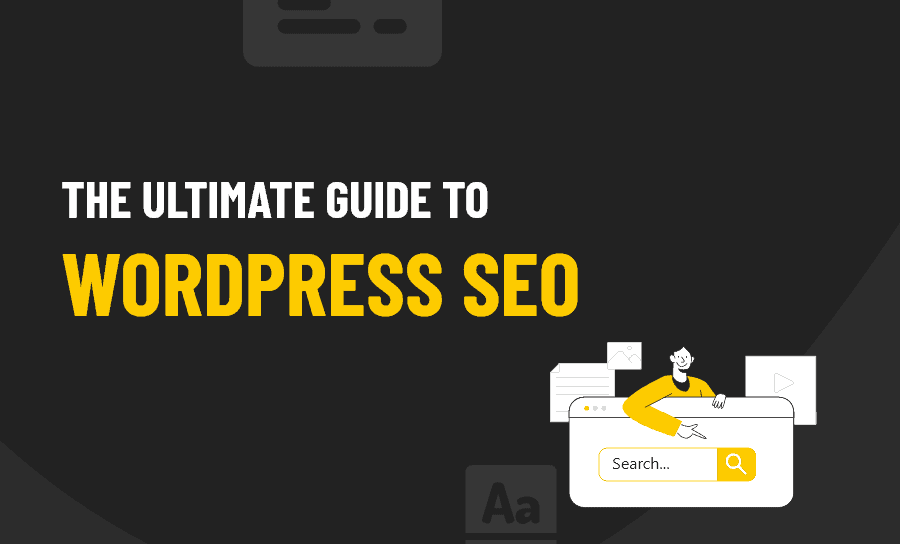The Ultimate Guide to WordPress SEO
Whether you are a blogger, or you are running a business website, your main goal is to drive more traffic to your website and generate income. This can be accomplished through WordPress Search Engine Optimization (SEO). It improves a website’s ranking on search engine results pages and thus drives more traffic toward it.
As one of the most famous website builders out there, WordPress is designed with the best SEO plugins in mind. To ensure that all these plugins work flawlessly, consider investing in managed WordPress hosting. Finding cheap WordPress hosting services can benefit small businesses or individuals looking to establish an online presence without breaking the bank.
Additionally, you can implement several strategies to enhance your SEO.
Some of them are as follows:
1. Page title, tagline, and permalinks
Make sure to include targeted keywords in your title tags to catch Google’s attention and improve your site’s visibility on Search Engine Result Pages (SERPs). This can increase click-through rates and bring more people to your website. Create an informative tagline with precise keywords that reflect the content of your website and brand products.
Permalinks, or complete URLs, can improve your website’s visibility to both users and search engines. They show a preview of your website’s content on the results pages and help potential users find it.
2. Long-tail keywords
The idea that simply incorporating targeted keywords into your WordPress website will get you on Google’s front page is a myth. This position necessitates excellent content, titles, backlinks, and other SEO-friendly elements that solidify your SEO ranking.
Long-tail keywords, which are specific search terms that visitors type, can be beneficial when used correctly. Keyword Tool Dominator, for example, can help you identify long-tail keywords that can be integrated into your site and generate a steady stream of network traffic.
3. Create a strong meta description
A meta description is a brief summary of a webpage’s content that appears in the search engine results beneath the site title. Creating an engaging meta description can boost organic search click-through rate (CTR), resulting in increased visibility, network traffic, and CTR.
To optimize your WordPress site, include unique and relevant meta keywords related to the page’s content.
4. Keyword-optimized posts
Keywords are essential for driving traffic to your website via search engines. Including them in places such as tags, titles, meta descriptions, and content can improve the SEO ranking of your website.
For example, if your website is about summer clothes, you could include keywords such as bathing suits, cotton t-shirts, linen shirts, shorts, and other similar items.
However, keyword stuffing should be avoided because it can result in penalties. Excessive keyword usage can damage your website’s performance.
5. There can only be one H1 per post
In HTML (Hypertext Markup Language), the H1 tag specifies the main heading on a web page and is regarded as the most important and largest heading. While subsequent headings such as H2, H3, H4, and so on may appear, the H1 tag is the primary focus of all search engines.
By default, the main title of a post in WordPress is designated as H1. While it is possible to edit the post, adding h1> tags throughout the website is not very practical.
6. Produce an XML Sitemap
Every page of a website contains formatted files known as XML (eXtensible Markup Language) Sitemaps. These files assist Google and other search engines in locating website pages. An XML sitemap allows you to crawl and index a website in order to find relevant content.
When you install the AIOSEO WP plugin on your website, it becomes much easier to find and rank pages. This plugin automatically generates sitemaps and improves SEO rankings.
7. Create quality backlinks
Connecting your website to another reputable site with relevant content can help it gain visibility and popularity. This is why backlinks are considered advantageous for SEO and an important ranking factor. A higher SEO ranking is directly related to the number of high-quality links pointing to your website.
According to research, 38% of the backlinks found on the first page of Google’s search results point to the best-performing websites.
8. Avoid content duplication
To avoid jeopardizing your SEO position and ranking, avoid duplicating content or using similar keywords across multiple pages on your website. Duplicity is strongly discouraged by Google and can have a negative impact on your search rankings.
When search engines try to decide which pages to rank, duplicate content can cause confusion. This is also referred to as “keyword cannibalization.” There is a chance that the original content will not be chosen as a top search result, and instead, its place will be taken by a lower-priority page.
Conclusion
If you want your website to attract more visitors and generate more money, you have to optimize it for search engines. WordPress offers a number of SEO plugins that will help you in this endeavor! Implement the above-mentioned strategies to get the best ranking and increase traffic to your website.



